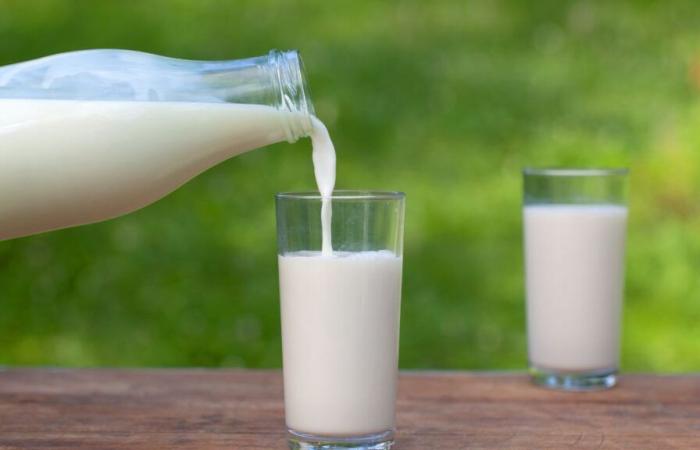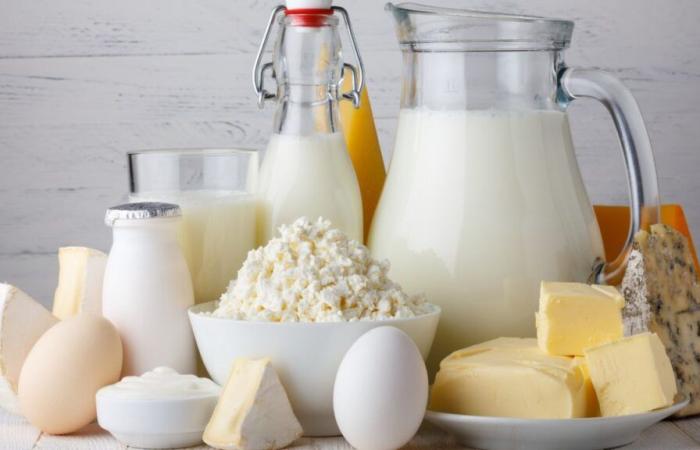Dairy products are not as good as you think about your health, you are told why.
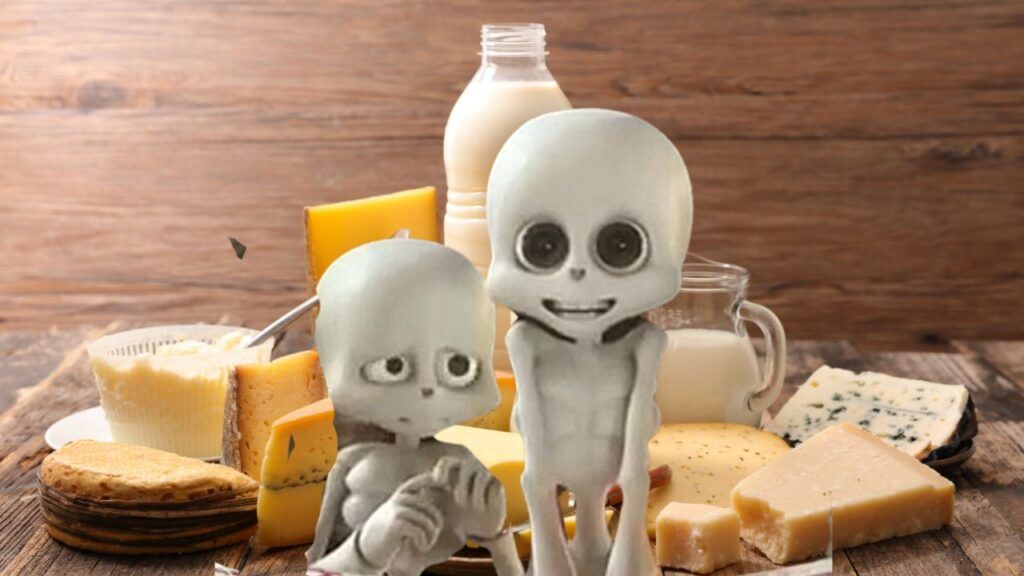
“Do you know the story of Paf Paf Paf Le Loup?” »» . “Dairy products are our friends for life.” We all grew up with this slogan. Repeated in a loop on TV, printed on the walls of the canteens, hammered in the pubs of the National Nutrition Health Program (PNNS). But if we press pause? If we coldly looked at the facts, beyond clichés and marketing campaigns? Are dairy products really essential? Beneficial? Or just tolerated? Small inventory of a more controversial food than it seems.
Where does this mantra come from?
This slogan was born at the start ofs 2000sat the Dui initatives Crielie (National Interprofessional Center for the Dairy Economy), in partnership with the Ministry of Health. The objective was clear: relaunching a consumption that stagnated, especially among young people.
Thus, an entire generation convinced that it is necessary “3 dairy products per day” To be healthy. Behind this campaign, a powerful lobby orchestrates the score: industrialists, producers, distributors. All gathered under the same banner. The CNIEL finances studies, sponsors nutritionists, influences food policies. Nothing is left to chance.
Is milk natural? Not really
A point, however often evacuated from the debate: the human being is the only mammal to consume milk After weaning… And above all, to drink that of another species. To digest lactoseyou need an enzyme called lactase.
Problem: its production falls after childhood in the majority of adults. Result, partial or total intolerance, more or less marked depending on the origins. In Europe, 10 to 15 % of adults are concerned. In Asia, we go up to 90 %. And despite that, milk continues to be sold as a universally beneficial food. A paradox at the height of its promotion.
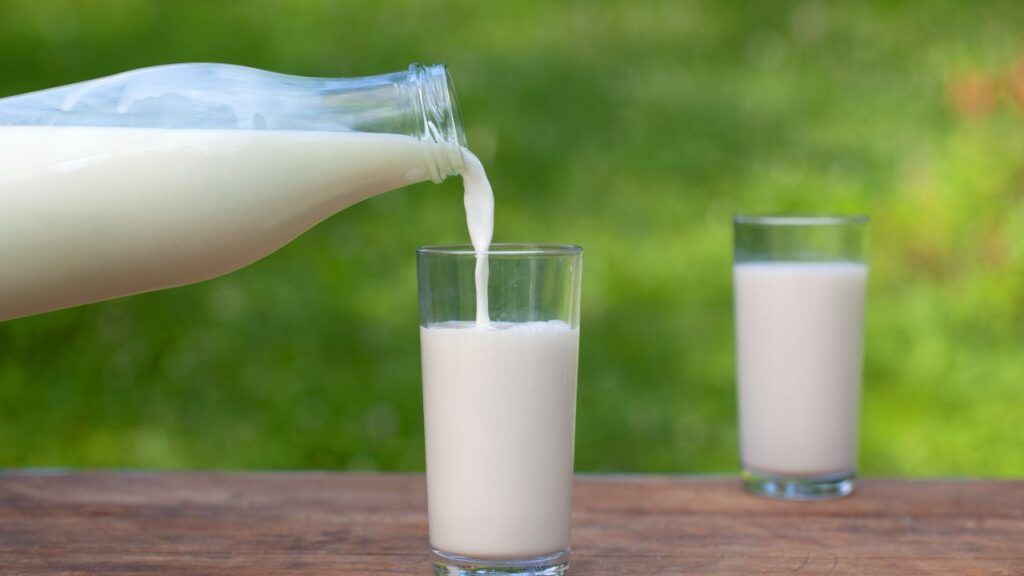

See also: Do not buy your milk anymore: here is how to make homemade vegetable milk!
What about calcium? There are not only one in dairy products!
It is the argument hammered on each corner of the department. Yes, milk is rich in calcium. No, it is not irreplaceable. Other foods full of it, sometimes in greater quantity: green vegetables, almonds, sesame, sardines or certain mineral waters like hepar or countered.
And above all, bone health does not only depend on calcium intake. Physical activity, vitamin Dacid-base balance: everything plays.
Consume too much milk: a risk for health?
Moreover, several studies, including Harvard or published in the British Medical Journal, show that countries with a high consumption of milk have … more fractures. A point Acidification of the body linked to animal proteinswhich could affect the absorption of calcium.
But that’s not all. Some research suggests that milk, consumed in excesscould weaken the immune system. In question: its potentially pro-inflammatory effect, which can create a favorable terrain for chronic diseases.
An inflammation of low grade, persistent, weakens the natural defenses of the organism, opening the way to various disorders. Osteoporosiscertainly, but also digestive diseasesautoimmune syndromes, even certain forms of cancer. Nothing is decided with certainty, but the question deserves to be asked: a food supposed to strengthen the organism could, in some, weaken its foundations.
But, it must be said that The health assessment is blurred. Studies point to several potential links, still debated, between excessive consumption of milk and increased risks acne, cancer prostate or ovary, chronic inflammatory problems, or digestive disorders such as irritable intestine syndrome.
Some works also mention a possible worsening of pathologies such as endometriosis. Conversely, other studies mention some profitsin particular in the prevention of high blood pressure or type 2 diabetes, but these effects are mainly observed in the context of the consumption of fermented products – natural, kefir yogurt – and not milk as such.
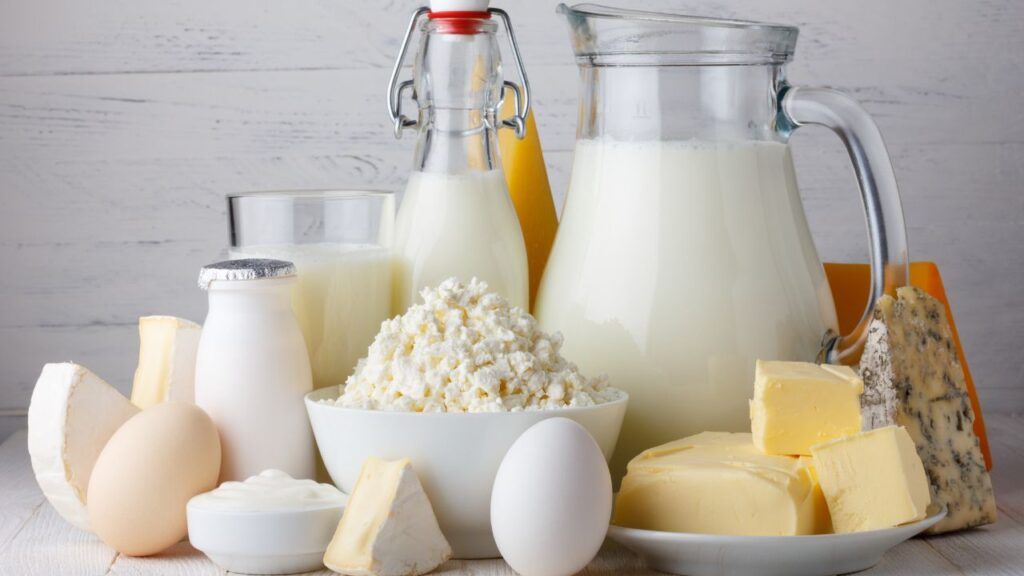

See also: I do not digest milk: what to do in case of lactose intolerance?
Fermented products vs liquid milk
This is where confusion settles down: we put everything in the same bag. Milk, yogurt, cheese, cream dessert… While biologically, everything opposes an artisanal kefir and a UHT flavored milk.
Fermented products are generally better toleratedbecause bacteria predicts lactose. Better still, they can enrich the microbiota, provided they are of quality, without added sugar or industrial additives.
On the other hand, Ultra-transformed cheeses Or sweet milks don’t have much to do in a balanced diet. They hold more pleasure food than nutrition need.
And the environmental and animal impact?
Dairy production is one of the most Resource in resources. Between the methane emissions of the ruminants, the tens of thousands of liters of water necessary to produce a single liter of milk, the erosion of the floors, the imported fodder, the refrigeration, the packaging and the transport … The ecological bill is salty. All this for a food that more than one in two human digests badly? We are entitled to wonder if the game is worth the candle.
Dairy cows live on average 5 to 6 years, while their natural life expectancy exceeds 20 years. To produce milk, they are inseminated each year. The calf is removed from birth, often shot or sold. Even in so-called “reasoned” farms, the cycle remains brutal, punctuated by the industrial rate more than by animal welfare.
Buzzwebzine is an independent media. Support us by adding to your favorites on Google News :



